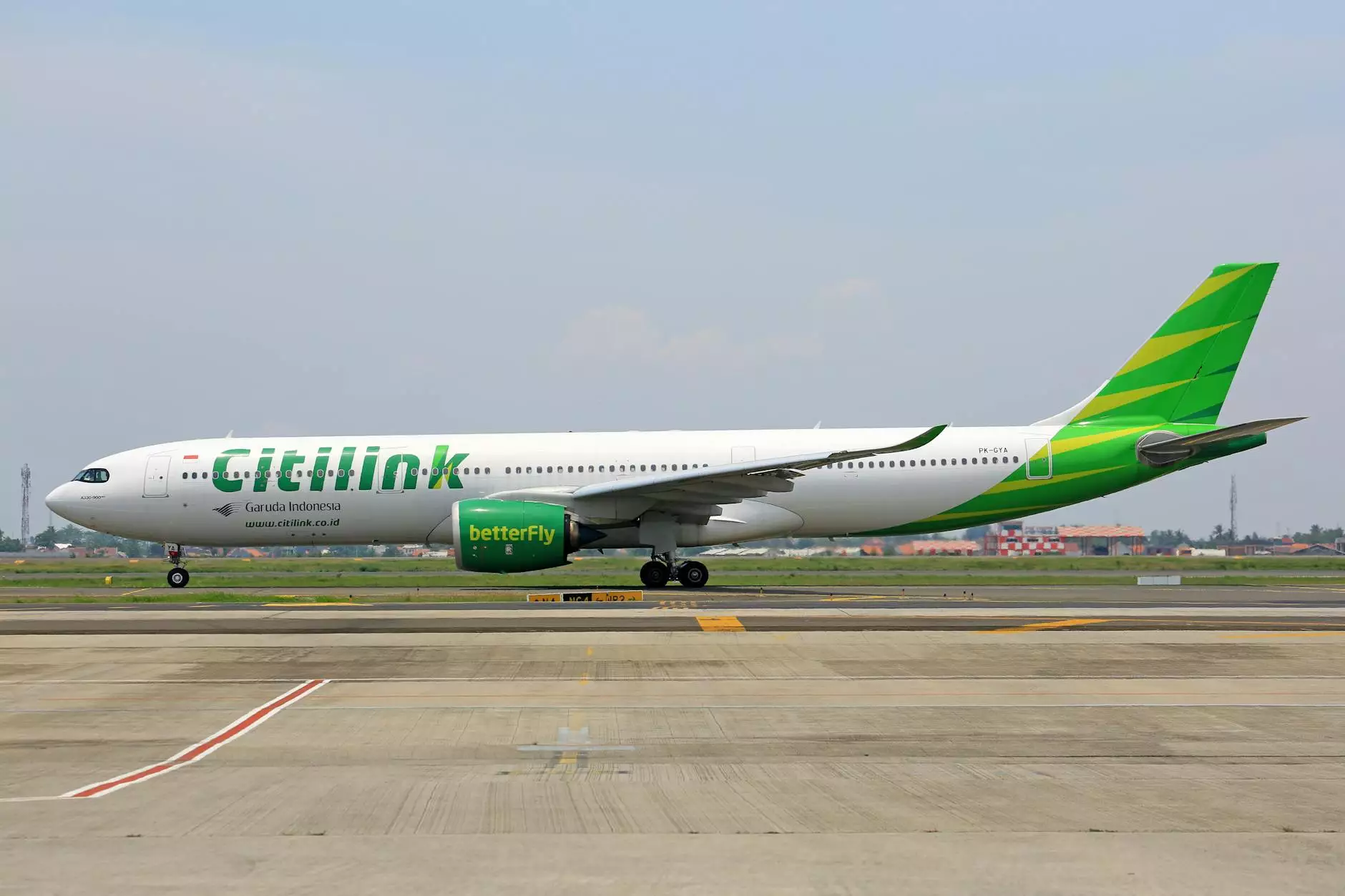Comprehensive Guide to Air Freight Pricing and Business Opportunities with Cargobooking.aero

Understanding the complexities of air freight logistics is crucial for businesses aiming to optimize their supply chains, reduce costs, and improve delivery times. At the heart of this process lies the concept of air freight price per kg, a pivotal factor influencing the profitability and competitiveness of your shipping operations. In this detailed guide, we delve into the intricacies of air freight pricing, explore how leading shipping centers and airports facilitate seamless transportation, and showcase how Cargobooking.aero emerges as a trusted partner in elevating your freight business to new heights.
Understanding Air Freight Price Per Kg: An Essential Metric for Global Trade
The air freight price per kg is a fundamental measurement in logistics, representing the cost to transport one kilogram of cargo via air. This metric fluctuates based on various factors, including weight, volume, destination, seasonality, and the type of goods being shipped. Targeting favorable pricing is vital for businesses seeking to maintain competitive advantages.
Key Factors Influencing the Air Freight Price Per Kg
- Weight and Volume: The volumetric weight often influences pricing, especially for light but bulky items. Airlines and freight providers assess the volumetric weight to determine billing, sometimes resulting in higher costs for large, lightweight packages.
- Destination and Route: Shipping to remote or less-connected airports often incurs higher fees due to logistical challenges and additional handling requirements.
- Fuel Costs: Fluctuations in global fuel prices directly impact air freight rates, often causing seasonal variations in pricing.
- Type of Cargo: Special cargo such as fragile, perishable, or hazardous materials may command premium rates, reflecting the additional care and handling needed.
- Market Demand: During peak seasons or global disruptions, prices tend to spike due to increased demand and limited capacity.
Optimizing Costs: How to Find the Best Air Freight Price Per Kg
Achieving the most competitive air freight rates requires strategic planning, partner selection, and a thorough understanding of market dynamics. Here are essential strategies:
1. Compare Multiple Logistics Providers
Leverage platforms like Cargobooking.aero to compare quotes from multiple carriers and freight forwarding companies. This transparency enables businesses to identify the best air freight price per kg for their specific needs.
2. Optimize Packaging and Weight
Reducing the volumetric weight and ensuring efficient packaging can significantly lower costs. Use packaging materials that maximize space and maintain cargo integrity without adding unnecessary weight.
3. Select Appropriate Routes and Airports
The choice of airports and routes affects costs considerably. Major hubs like Dubai International Airport, Singapore Changi Airport, and Los Angeles International Airport often offer more competitive rates due to higher cargo volumes, while smaller airports may have limited options and higher fees.
4. Plan for Peak Seasons
Avoid peak seasons when prices tend to rise. Booking well in advance or during off-peak periods can secure better rates for air freight price per kg.
The Role of Shipping Centers and Transportation in Air Freight Pricing
Effective use of shipping centers and transportation infrastructure is critical in managing costs and ensuring timely delivery. These elements act as the backbone of efficient air cargo operations.
Shipping Centers: Hubs of Cargo Management
Strategically located shipping centers serve as central hubs where cargo is consolidated and redistributed. These centers facilitate customs clearance, weight verification, and sorting, directly influencing delivery speed and cost efficiency.
Transportation Network: From Warehouse to Aircraft
A robust transportation network, including trucks, trailers, and rail services, ensures smooth movement of goods from origin to the airport. Optimal coordination reduces delays, minimizes handling costs, and enhances overall supply chain performance.
Airports: Gateways to Global Trade and Impact on Pricing
Airports are pivotal in determining logistical efficiency and cost. Major international airports offer better connectivity, more frequency of flights, and competitive rates, whereas smaller or less accessible airports may increase transit times and costs.
Choosing the Right Airport
- Proximity to Business Centers: Closer airports reduce transportation time and expenses.
- Infrastructure and Capacity: Facilities capable of handling larger volumes and specialized cargo support scalable growth.
- Connectivity and Frequency: Frequent flights to major destinations reduce waiting times and improve predictability.
Why Cargobooking.aero Is Your Ideal Partner for Air Freight Solutions
In a highly competitive logistics landscape, partnering with a platform like Cargobooking.aero offers numerous advantages:
- Unparalleled Access to Global Carriers: Easily compare competitive air freight price per kg quotes from a vast network of trusted carriers.
- Advanced Pricing Algorithms: Our platform uses sophisticated algorithms to provide real-time, tailored freight cost estimates, ensuring you get the best rates.
- Seamless Booking Process: Simplify your logistics with an intuitive interface that makes booking and managing shipments effortless.
- Expert Support and Consultation: Our team of logistics specialists guides you through complex international regulations, documentation, and customs procedures.
- Transparent and Competitive Pricing: Benefit from clear pricing structures that help you plan your budgets accurately.
Future Trends in Air Freight Pricing and Business Opportunities
The logistics industry continually evolves, driven by technological advancements, global economic shifts, and environmental considerations. Key trends that will shape the future of air freight include:
- Automation and Digitalization: AI-driven pricing tools and automated booking systems optimize efficiency and reduce costs.
- Green Logistics: Increased emphasis on sustainability is prompting newer, fuel-efficient aircraft and eco-friendly practices, potentially influencing rates.
- Supply Chain Resilience: Emphasizing flexible and diversified routes to mitigate disruptions, which can affect pricing stability.
- Integration of Blockchain: Enhancing transparency and security of transactions, fostering greater confidence in freight costs and documentation.
Conclusion: Elevate Your Air Freight Business with Strategic Planning and the Right Partner
Mastering the dynamics of the air freight price per kg is essential for businesses looking to optimize operations, reduce costs, and expand market reach. By understanding the key factors influencing pricing, leveraging the strategic advantages of prominent shipping centers and airports, and partnering with innovative platforms like Cargobooking.aero, your supply chain can become more agile, transparent, and cost-effective.
Embrace technological advancements, stay informed about market trends, and develop strategic relationships. Doing so positions your business at the forefront of global trade, unlocking new opportunities and fostering sustainable growth in the complex world of air freight logistics.









